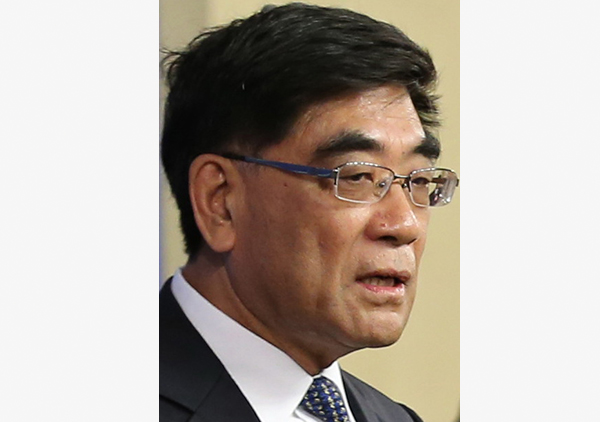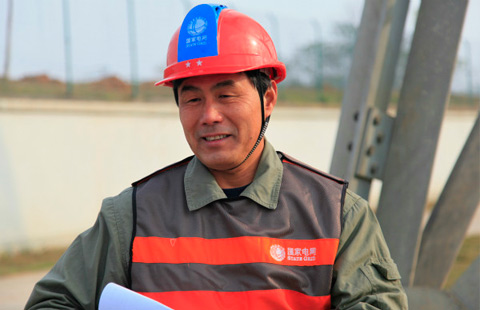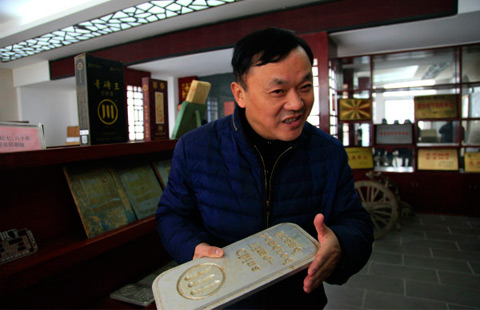'Dramatic changes ahead for SOEs'
 |
|
A Sinopec employee records statistics at Shengli Oilfield, Shandong province. [Photo/Xinhua] |
China's biggest state-owned companies will see "dramatic changes" in the next few years as they will have to downsize and become more efficient, according to the former chairman of two of the country's biggest producers.
Chinese oil companies have "tremendous room" to improve efficiency and will be "suffering for the next few years" amid the oil crash that has pushed prices down to roughly half their value from mid-2014, said Fu Chengyu, former chairman of both Cnooc Ltd and China Petroleum & Chemical Corp, known as Sinopec. Domestic producers need at least $60 a barrel to stabilize China's slumping oil production, he said.
"We are a big elephant already," Fu said in New York City on Tuesday at Columbia University's Center on Global Energy Policy. "If we don't move faster, reform ourselves faster, we will become a dinosaur."
China's explorers have been hit hard by the slump in international crude oil prices because of production costs inflated by large work forces and mature domestic resources. Output from the world's second-biggest consumer has slid this year as the country's producers shut fields that are too expensive to operate at current prices, forcing the country to seek more oil from overseas.
 |
|
Fu Chengyu, former chairman of both Cnooc Ltd and China Petroleum& Chemical Corp. [Photo provided to China Daily] |
PetroChina Co, the country's biggest oil and gas producer, barely broke even in the first-half, even after booking a 24.5 billion yuan ($3.56 billion) one-time gain from pipeline sales. Cnooc Ltd., the biggest offshore explorer, posted a first half loss as low crude prices forced it to write down assets. Sinopec, the world's biggest refiner, posted a profit in the first three quarters this year, thanks to its oil-refining business, which benefits from low crude prices.
Fu retired as Sinopec's chairman in May 2015 after working in China's oil industry for almost four decades, including serving as Cnooc's chairman. Fu was one of the first state-owned enterprise chairmen to start mixed-ownership reform by selling 30 percent of Sinopec's retail division to outside investors for $17.5 billion in 2014.
China's crude production from January to October fell 6.7 percent from a year ago to 166.8 million metric tons, according to data from the National Bureau of Statistics last month. October crude output dropped 11.3 percent to 16.05 million tons, or about 3.795 million barrels a day, down 2.7 percent from September.
Firing employees is not an option "either legally or culturally", Fu said.
Bloomberg

















